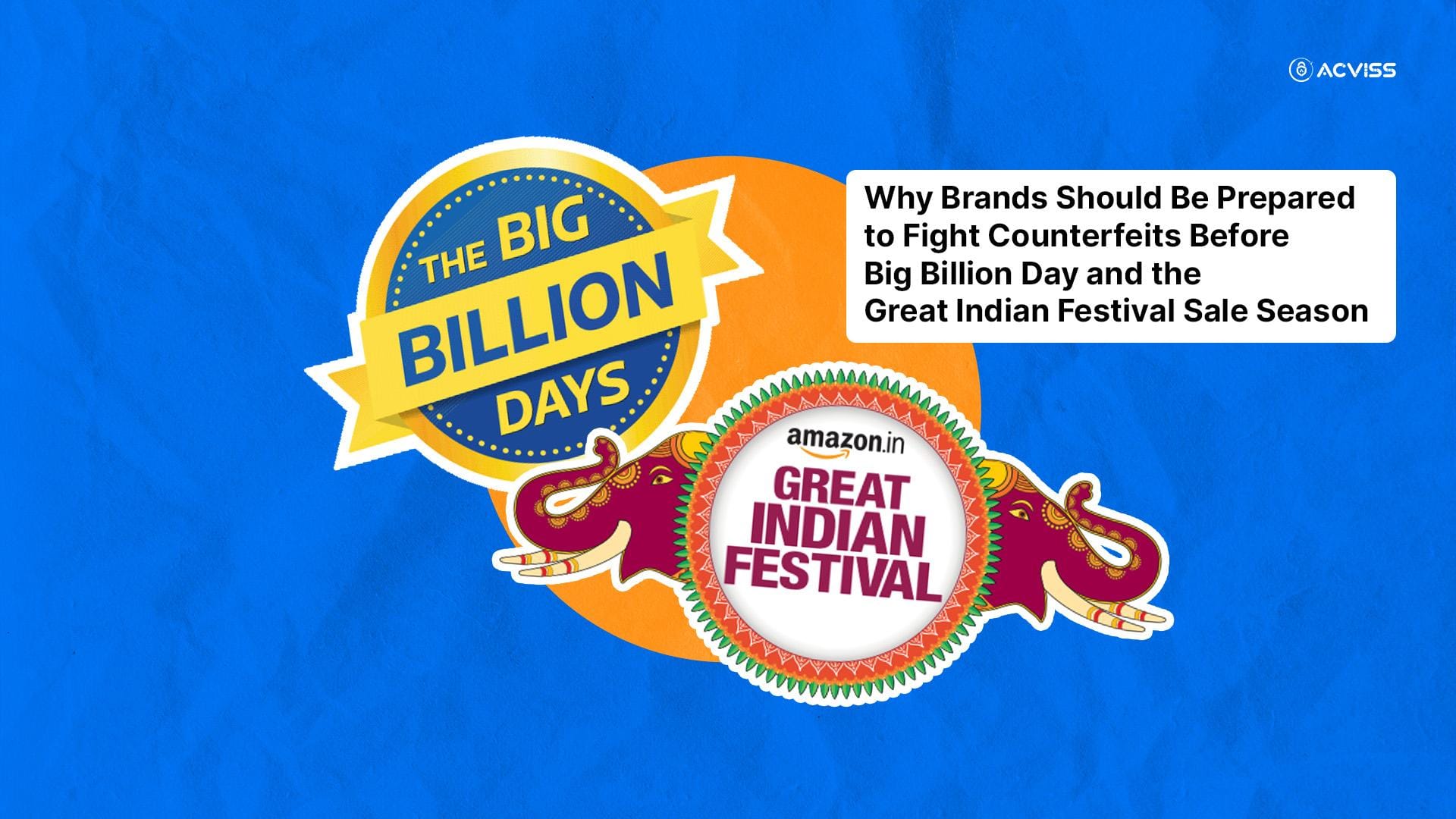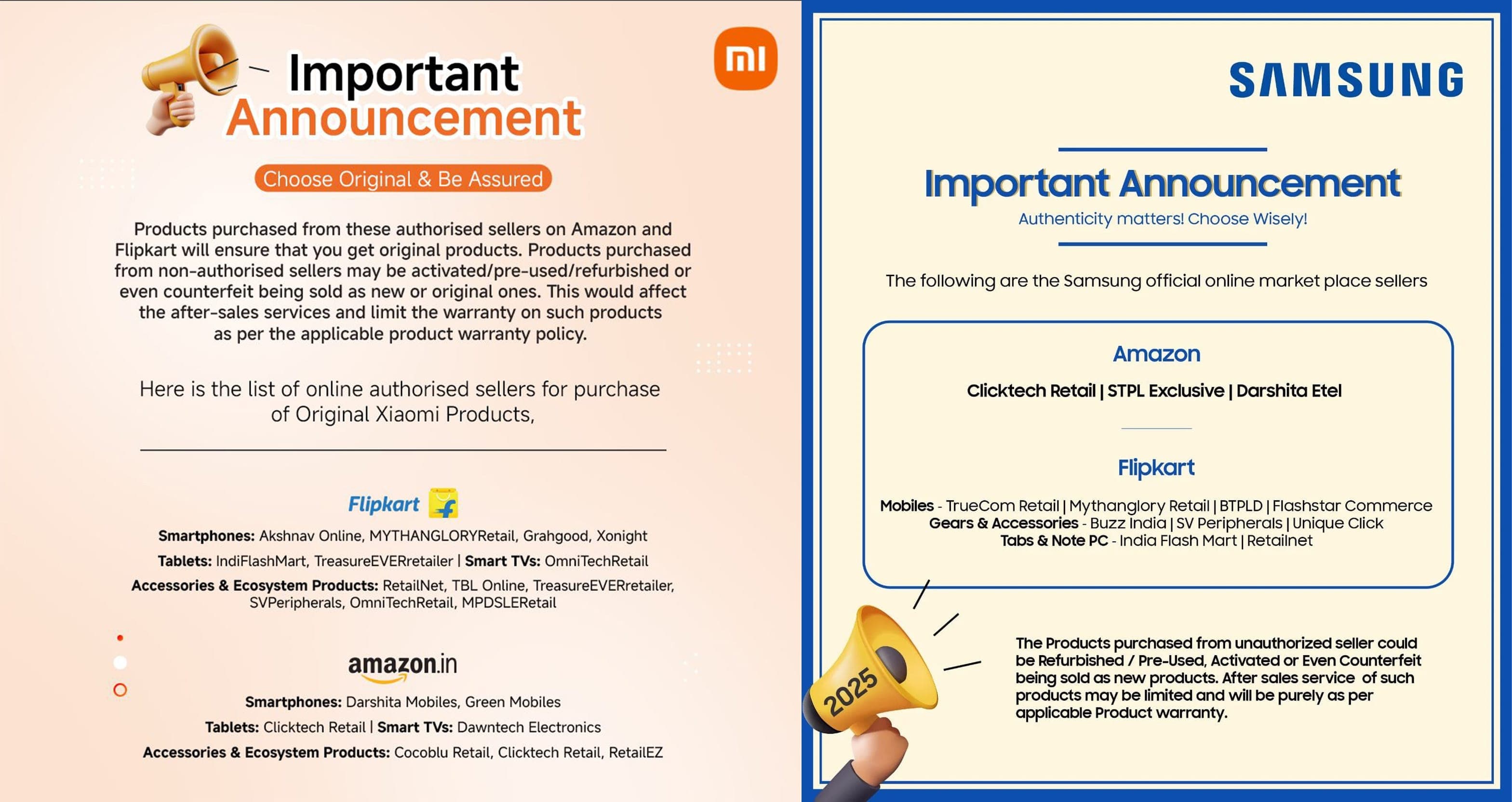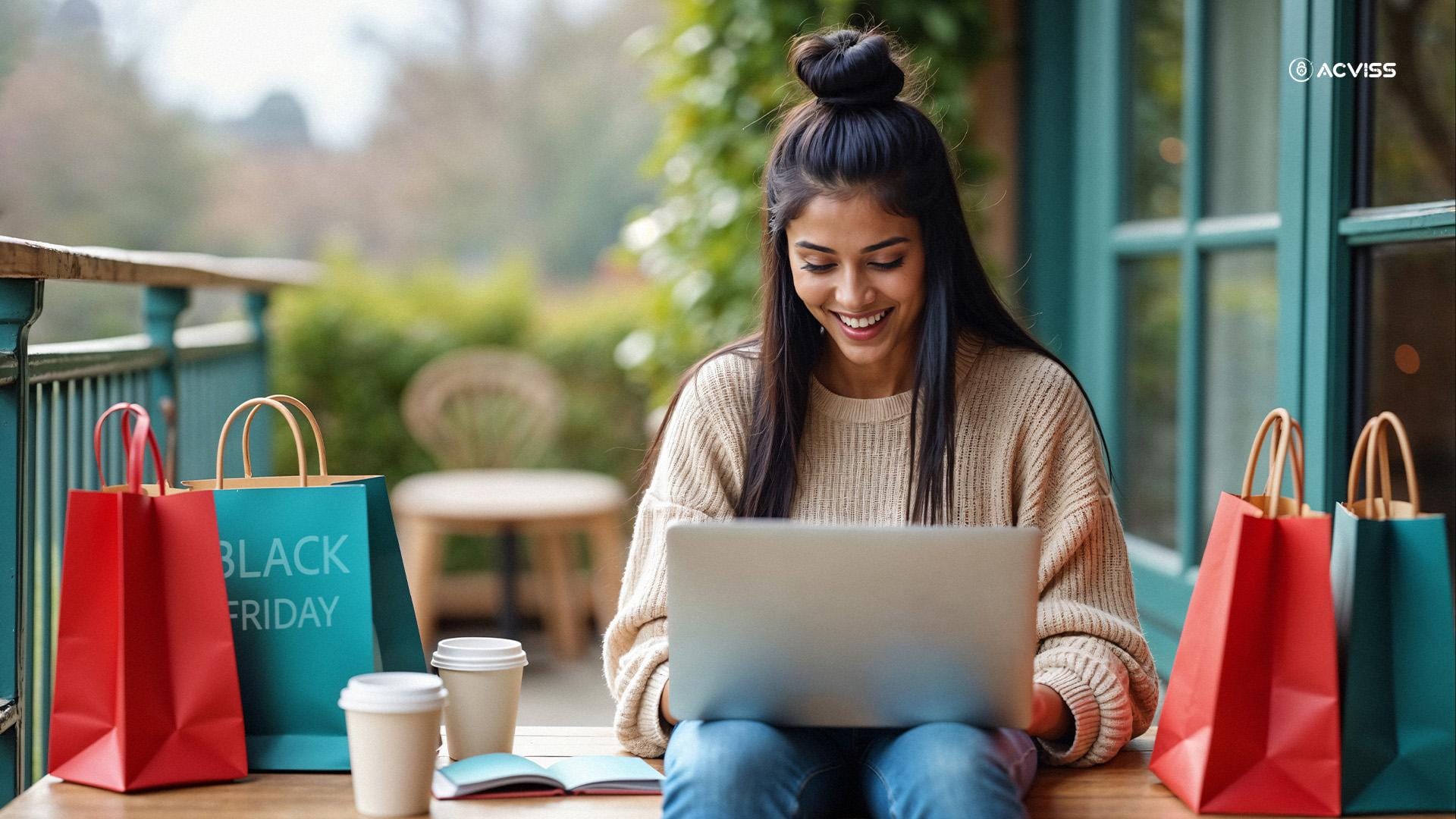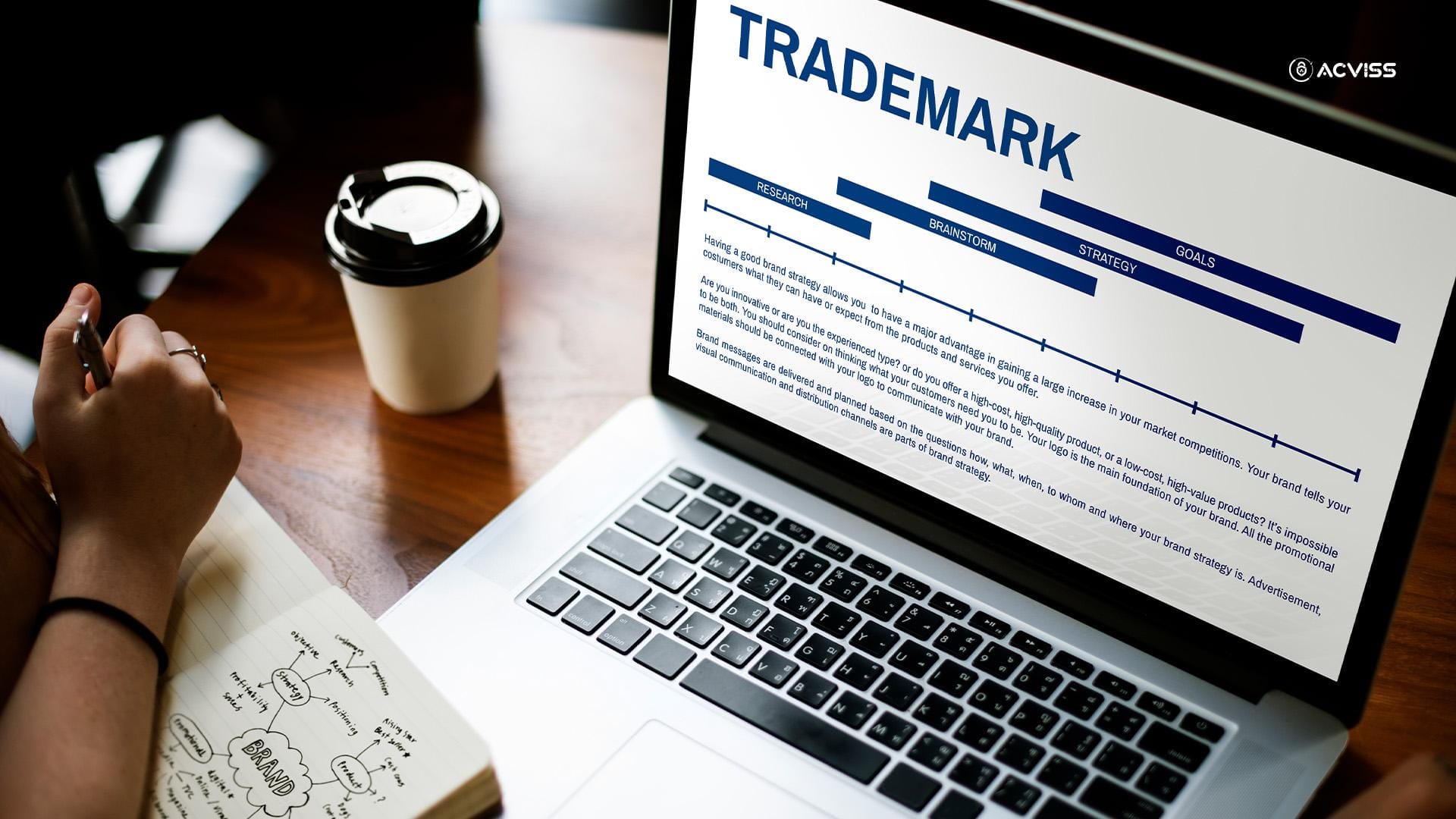How Brands Can Stop Counterfeits Ahead of Big Billion and Festival Sales

Festive sale seasons in India have become more than just a shopping event. They are a cultural phenomenon, akin to Diwali celebrations or cricket finals, bringing millions of consumers to digital marketplaces at the same time. Platforms such as Flipkart’s Big Billion Day and Amazon’s Great Indian Festival have transformed how Indians shop, offering deep discounts, fast deliveries and irresistible deals.
But alongside this surge in opportunity lies a less talked-about threat: the shadow of counterfeit products. As consumer appetite grows during these mega sales, counterfeiters also find an open playground to infiltrate supply chains, list fake products online, and deceive unsuspecting buyers. The risks extend far beyond a single transaction. Counterfeit goods erode trust, damage brand equity, and expose consumers to health and safety hazards.
For brands, large or small, the need to prepare well before the sales season is no longer optional. It is an essential part of modern brand protection and consumer trust management.
The Rise of Festive Mega Sales and the Counterfeit Opportunity
The growth of e-commerce in India has been meteoric. Flipkart and Amazon alone account for a majority of the online retail share, with festive sales being their flagship events. During Big Billion Day and the Great Indian Festival, consumers see discounts across categories from electronics and fashion to home essentials and FMCG goods.
This surge in volume creates three vulnerabilities for brands:
- Sheer scale of demand – With millions of orders placed daily, counterfeit products can slip through unnoticed if safeguards are not robust.
- Multiple seller ecosystem – Both platforms host a wide network of sellers. Without clear brand verification, counterfeiters can mimic official listings.
- Consumer price sensitivity – Shoppers, lured by the lowest price tag, may unknowingly purchase counterfeit goods.
Counterfeiters understand this psychology well. They prepare months in advance to list fake products that resemble genuine ones, undermining supply chain management systems and brand credibility.
Why Authorised Sellers Matter
Both Amazon and Flipkart have recognised this risk and have taken steps to ensure consumer safety. One of the most effective initiatives has been encouraging brands to publish lists of authorised sellers.
Recently, Samsung India and Xiaomi India announced their authorised marketplace sellers on social media ahead of festive sales. This move achieved two things:
- It gave consumers a clear direction on where to shop safely.
- It placed accountability on sellers to comply with trademark and IP protection requirements.
For larger brands like Samsung and Xiaomi, this initiative reinforces existing brand trust. For smaller or emerging brands, however, the authorised seller announcement is even more critical. It helps them signal legitimacy in a crowded marketplace, ensuring their products stand apart from counterfeits.

The Consumer Perspective: Awareness and Action
Consumers are increasingly aware of the risks of counterfeit goods, especially in high-value product categories such as smartphones, cosmetics, and branded apparel. But awareness alone is not enough.
Here’s what consumers must do during sale seasons:
- Check the authorised seller lists published by brands.
- Look for brand authentication markers such as unique security codes or tamperproof packaging.
- Verify products on receipt, especially in categories where health and safety are at stake.
By becoming active participants in product verification, consumers protect themselves and contribute to broader anti-counterfeiting solutions.
The Brand Perspective: Protecting Consumers and Reputation

For brands, preparing before Big Billion Day and the Great Indian Festival means more than participating in discounts and promotions. It requires adopting a holistic brand protection strategy that integrates online and offline initiatives.
Online Protection Measures
- Brand monitoring on marketplaces, social media and websites using AI-powered tools to detect unauthorised listings.
- Trademark enforcement by reporting and taking down counterfeit listings that infringe IP rights.
- Consumer engagement through campaigns that educate buyers about brand authentication.
Acviss's Truviss play an important role here, scanning digital platforms for counterfeit listings and helping brands act swiftly.
Offline Protection Measures
- Tamperproof labelling with unique, non-cloneable codes that allow consumers to authenticate products at the point of purchase.
- Track and trace technologies across the supply chain to monitor product movement and ensure product traceability from manufacturer to retailer.
- Retailer training to ensure last-mile brand verification is maintained.
Here, solutions like Certify empower brands to give their consumers a simple method to verify product authenticity and safeguard against counterfeits.
Together, these solutions create a multi-layered defence that strengthens brand verification while upholding consumer trust.
Flipkart’s Initiatives Against Counterfeits
Flipkart has introduced measures such as the “Brand Shield” programme, offering IP protection services that allow brands to report counterfeit listings. The platform also works with brands to strengthen brand authentication through authorised seller programmes.
During Big Billion Day, Flipkart’s focus is not just on deals but also on assuring buyers that they are shopping safely. This is achieved through proactive partnerships with brands to enforce trademark protection and product authentication at scale.
Amazon’s Initiatives Against Counterfeits
Amazon has launched global programmes like Project Zero and the Transparency program to combat counterfeit goods. These initiatives allow brands to directly remove infringing listings and apply unique codes for product verification.
In India, ahead of the Great Indian Festival, Amazon has actively encouraged brands to disclose authorised sellers and adopt track and trace systems. By combining automated detection with brand-driven authentication, Amazon enhances product traceability and builds consumer confidence.
Why Smaller Brands Must Step Up
While global brands often have the resources to enforce IP protection, smaller brands tend to underestimate the counterfeit risk during festive seasons. Ironically, these are the brands most vulnerable to erosion of consumer trust if fake products enter the market.
For smaller brands, publishing authorised seller lists is not just a procedural step. It becomes a powerful brand protection signal. Combined with anti-counterfeiting solutions such as digital product verification and supply chain management systems, it ensures their products remain competitive and trusted.
The Role of IP and Trademark Protection

Trademark protection and IP protection are fundamental to fighting counterfeits. Counterfeiters thrive by exploiting weak enforcement or unclear ownership. By registering trademarks, securing IP rights, and enforcing them actively, brands create a legal backbone to support anti-counterfeiting technologies.
Moreover, consumers today expect brand authentication mechanisms as part of their purchase experience. From QR codes that verify product origin to blockchain-based track and trace systems, these measures reinforce product trust at a granular level.
Building a Culture of Brand Protection
Brand protection should not be treated as a seasonal necessity limited to festive sales. Instead, it must be embedded into the very fabric of supply chain management and consumer engagement.
- Proactive preparation months ahead of mega sales.
- Integrated online and offline monitoring for product traceability.
- Educating consumers about product authentication methods.
- Collaborating with marketplaces to strengthen anti-counterfeiting solutions.
By fostering this culture, brands not only survive festive rushes but thrive, building long-term loyalty and credibility.
Conclusion: Preparation is Protection
The Big Billion Day and Great Indian Festival represent golden opportunities for brands to expand their consumer base. But opportunity brings risk. Counterfeiters are agile, resourceful and determined. Brands must be more vigilant, more proactive and more committed to protecting both their products and their customers.
Ultimately, the festive sales season is not just about deals and discounts. It is about trust. And trust, once lost, is almost impossible to regain.
Interested to learn more about protecting your brand during festive sales? Get in touch with us today.
